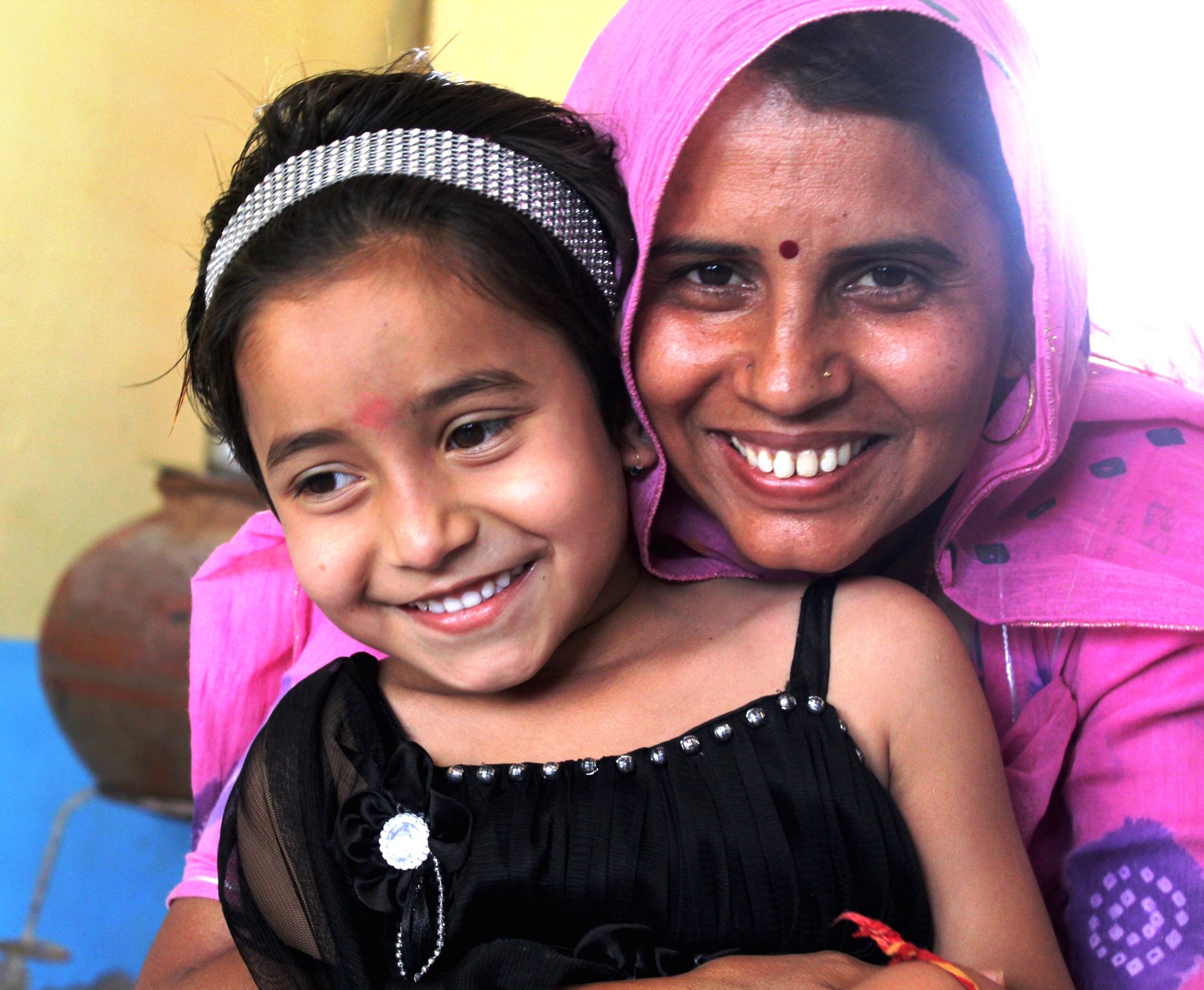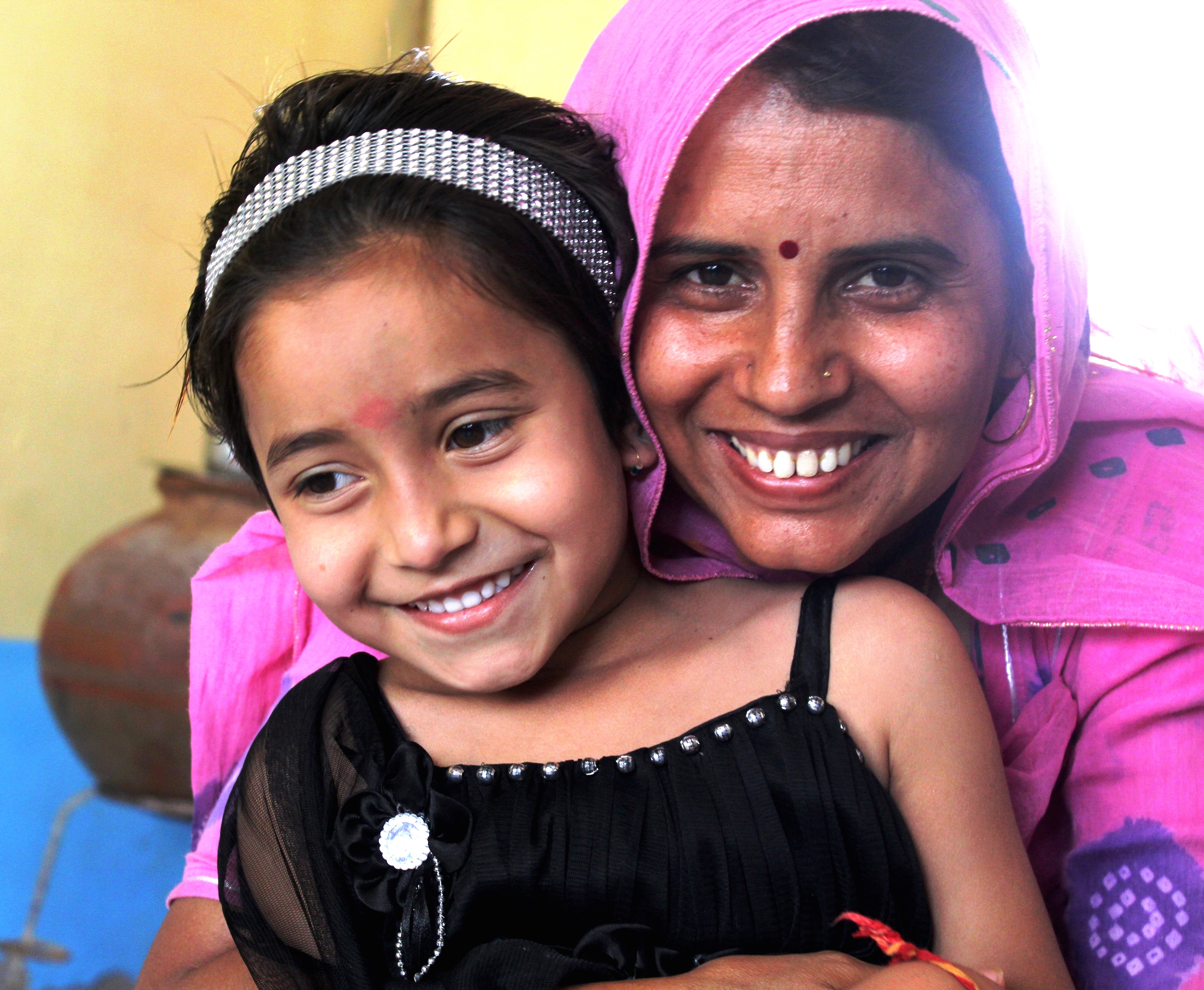The Power Of A Second Chance

Meena Bhati (pictured above with a girl from the village) was born into a Rajput family living in the Chanud Village of Pali district in Rajasthan, India. The Rajput community does not believe in educating a girl child; many families there do not even wish to bring a girl into this world because she is seen as a liability. She grew up in a society where women were treated with inequality in all walks of life. Meena was lucky that her parents gave her the opportunity to study, but only until class 10. She pleaded with her parents to allow her to continue her education after class 10 but she was told to pay attention to household chores and prepare for marriage instead. Soon after she was married, much against her wish.
Little did Meena know, she had another chance waiting for her. Her husband was a teacher, and understood the importance of education. Instead of risking her life with an adolescent pregnancy or being forced to work at home, Meena was re-enrolled in school. Though their parents disapproved, Meena’s husband stood by her side and supported her. She now holds a Bachelor’s degree in Education and is taking post-graduate courses in Hindi and Rural Development.
Meena joined Educate Girls 6 years ago, and is our longest-serving employee. She has risen through the ranks and is now a Field Communications Manager. Many of our staff and volunteers, as well as people in the community, look up to her. Though inspiring, Meena’s story is not the norm.
There are 3.7 million out-of-school girls in India. Over 50% of girls in India between the ages of 10 and 13 drop out of school. The state of Rajasthan has 9 of India’s 26 worst gender gap districts in education, where 68% of girls are married below the legal age and 15% are married below the age of 10. Of girls who are enrolled in school in Rajasthan, only 1 in 100 will reach class 12, and 40% of girls leave class before class 5. Many girls are not as fortunate as Meena, but they still deserve a chance.
Educate Girls finds out-of-school girls, enrolls them, and gives them an opportunity to realize their potential. Our holistic approach to education mobilizes communities to take a stand against gender disparity. It involves parents, schools, community leaders, local government, and our own village-based volunteers (Team Balika) to ensure increased enrollment and retention of girls in schools, and improved learning outcomes for all students. We believe that by empowering village communities to prioritize education, more girls can be educated at a larger scale. If more girls are educated, then their health, income levels and overall livelihoods improve, having residual effects on the surrounding community and society as a whole. Meena’s story is an example of what can be achieved when a girl is given a chance to be educated.
Our goal is to improve access and quality of education for around 4 million children living in underserved communities in India by 2018.
Here is a video (in Hindi) of Meena speaking about her ongoing work with Educate Girls.
Twitter: #educategirls #impact #teambalika
Educate Girls
Posted on June 19, 2014
Interested in contributing towards
educating girls?
Quick Links
Resources & More
Keep helping. Stay Updated.
Child Protection Policy | Privacy Policy | Terms of Use | Employee Login | IT Assets
Educate Girls is a project of Foundation To Educate Girls Globally (FEGG) | FEGG is registered in India under Section 8 of the Indian Companies Act, 2013.
© 2018 All rights reserved. Educate Girls.


